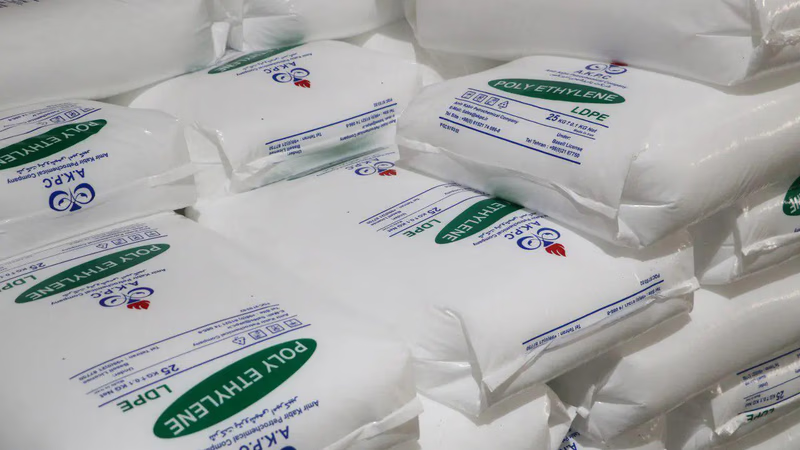
Polypropylene"s versatility in packaging and automotive applications. "
Polypropylene can be easily molded and processed into various forms, including fibers, films, sheets, and complex shapes. It can be manufactured through processes such as injection molding, blow molding, extrusion, and thermoforming. This versatility allows polypropylene to be tailored to different application requirements. Polypropylene is a lightweight material, which offers advantages in terms of transportation, energy efficiency, and user convenience. Its low density makes it an excellent choice for applications where weight reduction is important, such as automotive components and packaging materials.
Polypropylene has a relatively high melting point and good heat resistance. It can withstand elevated temperatures without losing its shape or mechanical properties. This thermal stability makes it suitable for applications that involve heat, such as automotive components, electrical appliances, and packaging for hot-filled products. Polypropylene has excellent electrical insulation properties, making it suitable for applications in the electrical and electronics industries. It can be used in capacitors, electrical connectors, insulating materials, and other electronic components where electrical insulation is critical.
Polypropylene is extensively used in packaging materials such as bottles, containers, caps, films, and bags. It is preferred for its lightweight nature, durability, chemical resistance, and ability to be molded into different shapes. Polypropylene is widely used in the automotive industry for manufacturing various components. It is utilized in the production of bumpers, interior trim, door panels, dashboard parts, fuel systems, battery cases, and more. Its lightweight nature, impact resistance, and ability to withstand heat make it suitable for automotive applications.
Polypropylene has been able to replace engineering polymers and even metal parts in industrial applications due to its easy acceptance of high amounts of various fillers and reinforcements, and as a result, a wide market has been opened for it. In addition, alloying with other polymers has diversified the grades and applications of this polymer. polypropylene is used in:
- Pipe
- Research
- Thermoforming containers and plastic cartons
- Injection parts
- Fiber
- Blow molding
- Belts and straps
Polypropylene is used in the electrical and electronics industries for various applications. It is utilized in the production of capacitors, electrical connectors, insulating materials, cable insulation, and battery components due to its excellent electrical insulation properties. Polypropylene is employed in the construction industry for various purposes. It is used in the production of pipes, fittings, geomembranes, geotextiles, roofing membranes, and insulation materials. Polypropylene's chemical resistance, durability, and ability to withstand environmental conditions make it suitable for construction applications.
Polypropylene has low water absorption and is resistant to moisture, making it suitable for applications exposed to water or moisture. It retains its mechanical properties and does not degrade in moist environments, making it useful for outdoor applications and products requiring water resistance. Polypropylene is relatively inexpensive compared to other engineering plastics, making it an economical choice for a wide range of applications. Its cost-effectiveness, combined with its desirable properties, makes it a popular material in various industries. Compared to other polymers, polypropylene has distinctive and prominent characteristics, which are:
- Relatively cheap price of propylene monomer compared to other polymer monomers
- Low price of PP compared to other polymers
- Specific weight and lightweight of PP
- Flexibility and wide range of PP production with variable physical and chemical properties:
- Increase new applications and improve the properties of new production grades
- Increase the use of PP in medical devices and equipment and develop applications of special grade PP
- Increase consumption of PP as an alloy with other polymers
- Replacement of polymers such as PS, PE, etc. with PP
Polypropylene is used in agriculture for manufacturing products such as greenhouse films, crop covers, irrigation components, and packaging materials. Its lightweight nature, resistance to chemicals, and UV stability make it well-suited for agricultural applications. Polypropylene is employed in the production of furniture and appliances. It is used for manufacturing chairs, tables, cabinets, drawers, and various household items. Polypropylene's durability, impact resistance, and ease of molding make it suitable for these applications.
Polypropylene fibers are used in the textile industry to produce non-woven fabrics, geotextiles, carpet backing, ropes, and other similar products. Polypropylene textiles offer properties such as high strength, excellent moisture-wicking, and resistance to abrasion, making them useful in applications ranging from clothing to industrial textiles. Polypropylene is commonly used in the medical and healthcare sectors. It is utilized for manufacturing medical devices, including syringes, vials, pipettes, containers, and surgical instruments. Polypropylene's chemical resistance and ability to withstand sterilization processes make it suitable for such applications.
Polypropylene exhibits excellent chemical resistance, making it resistant to many acids, alkalis, and solvents. This property enables its use in applications that involve contact with aggressive chemicals, such as containers, pipes, and chemical processing equipment. Despite being lightweight, polypropylene has a high strength-to-weight ratio. It offers good mechanical properties, including tensile strength, impact resistance, and stiffness. This combination of strength and low weight makes it suitable for applications where both strength and weight reduction are important, like automotive parts and structural components.
-
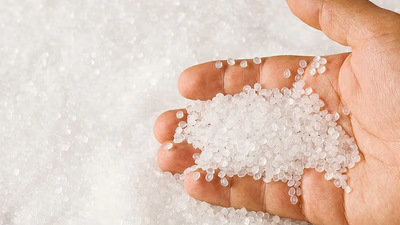
Polypropylene is a versatile thermoplastic polymer derived from propylene, known for its high strength-to-weight ratio, chemical resistance, and thermal stability. It is widely utilized across various industries, including automotive, packaging, and textiles. Its lightweight nature makes it ideal for applications requiring weight reduction, such as automotive parts and packaging materials. Polypropylene"s excellent clarity and impact resistance allow it to be molded into diverse shapes for containers and films. In textiles, polypropylene fibers are used to create durable non-woven fabrics and carpets due to their abrasion resistance and moisture-wicking properties. The polymerization process of propylene involves the Ziegler-Natta catalyst, resulting in an isotactic polymer with high crystallization potential. Polypropylene"s resistance to solvents, bases, and acids enhances its suitability for containers and pipes in aggressive environments. Its low moisture absorption compared to other polymers makes it advantageous for various applications.
Despite its low melt strength limiting some processing methods like blow molding, polypropylene"s high melting point ensures it retains shape under heat exposure. Additionally, its electrical insulation properties make it valuable in electronic components. "
-
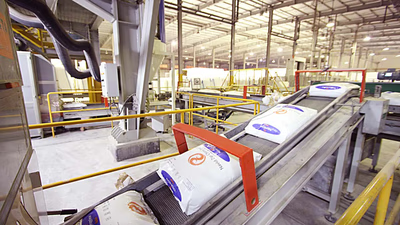
The Middle East is a leading producer of propylene, essential for polypropylene manufacturing, due to its abundant natural gas and petroleum resources. The region"s strategic location facilitates access to major markets in Asia and Europe, enhancing export logistics. Advanced catalysts and technologies have improved production efficiency, allowing for cost-effective polypropylene output. Countries like Saudi Arabia, Qatar, Oman, the UAE, and Iran are key players in this sector, with companies such as Saudi Aramco and Borouge leading production efforts. The growing demand for polypropylene driven by urbanization and industrialization in nearby regions like China and India further boosts capacity expansions in the Middle East. As these nations diversify their economies away from oil dependency, the petrochemical industry becomes increasingly vital. Investments in integrated petrochemical complexes enhance productivity and competitiveness while fostering a business-friendly environment through incentives for domestic and international investors. This strategic focus on petrochemicals positions the Middle East as a significant player in the global polypropylene market. "
-
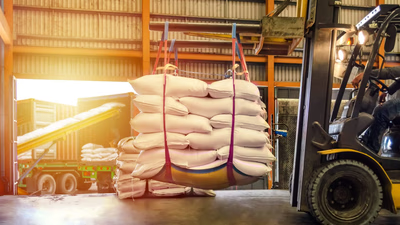
Karl Ziegler"s discovery of the Ziegler-Natta catalyst in 1951 revolutionized the production of polypropylene, enabling its commercial use by 1957. This polymer is known for its excellent mechanical properties, chemical resistance, and thermal stability, making it suitable for diverse applications such as packaging, textiles, and automotive components. The versatility of polypropylene has led to advancements in production technologies and the development of various grades tailored for specific industry needs. Recent trends emphasize recycling and sustainability, with innovations aimed at reprocessing post-consumer waste and creating bio-based alternatives. The global polypropylene market is projected to grow significantly, with a compound annual growth rate (CAGR) of 5. 78% from 2024 to 2029. The Asia-Pacific region is expected to lead in consumption due to high demand from countries like China and India. As industries continue to seek sustainable solutions, the focus on enhancing polypropylene"s properties through nanomaterials and advanced catalysts will likely shape its future applications.
-
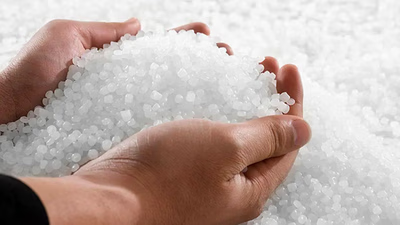
Middle Eastern countries, notably Saudi Arabia, Qatar, the UAE, and Oman, have heavily invested in petrochemical infrastructure, positioning themselves as leaders in global polypropylene production. The region"s abundant and low-cost feedstock from natural gas and crude oil supports large-scale petrochemical complexes. Global polypropylene capacity is projected to grow significantly from 97. 65 million tonnes per annum (mtpa) in 2022 to 159. 35 mtpa by 2027, with a notable number of new projects planned primarily in Asia and the Middle East. Despite regional market challenges such as oversupply in Northeast and Southeast Asia, Middle Eastern producers are expected to maintain production levels to capture market share. Companies like Borouge and SABIC are key players in the UAE and Saudi Arabia respectively, contributing significantly to the region"s output. Oman also plays a role through Orpic"s production facilities.
The competitive landscape includes pressures from European imports and potential supply gluts from China affecting global dynamics. As the Middle East anticipates an increase in polypropylene capacity at an average annual growth rate of 9. 5%, it remains crucial for stakeholders to stay informed through industry reports for accurate insights into this evolving market. "
-
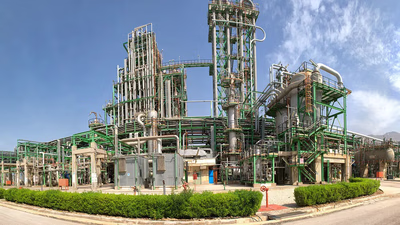
Polypropylene is produced in various grades, each tailored for specific applications based on molecular weight, mechanical properties, and processing methods. High molecular weight grades provide superior strength and toughness, while low molecular weight options enhance flow properties and ease of processing. Key grades include homopolymer PP, known for its high melting point and mechanical strength; random copolymer PP, which improves impact resistance; block copolymer PP, combining stiffness with enhanced clarity; and HMS-PP, designed for improved processability. Polypropylene can also be reinforced with fillers to boost its mechanical properties. Specialty grades are available for unique applications such as flame-retardant or UV-stabilized polypropylene. The choice of grade impacts cost-effectiveness without sacrificing performance, making polypropylene a versatile material across industries like automotive and packaging.
-

Polypropylene is a versatile polymer used across various industries due to its lightweight, durability, and chemical resistance. It can be molded into different forms such as fibers, films, and complex shapes through processes like injection molding and extrusion. Its high melting point and excellent electrical insulation properties make it suitable for automotive components, packaging materials, and electrical applications. In the automotive sector, polypropylene is utilized for bumpers, interior trim, and fuel systems due to its impact resistance and heat tolerance. The construction industry benefits from polypropylene"s chemical resistance in pipes, fittings, and insulation materials. Additionally, it finds applications in agriculture for greenhouse films and irrigation components. Polypropylene"s cost-effectiveness compared to other engineering plastics has led to its increased use in medical devices and furniture manufacturing. Its unique properties allow for the development of new grades that enhance performance across various applications.






